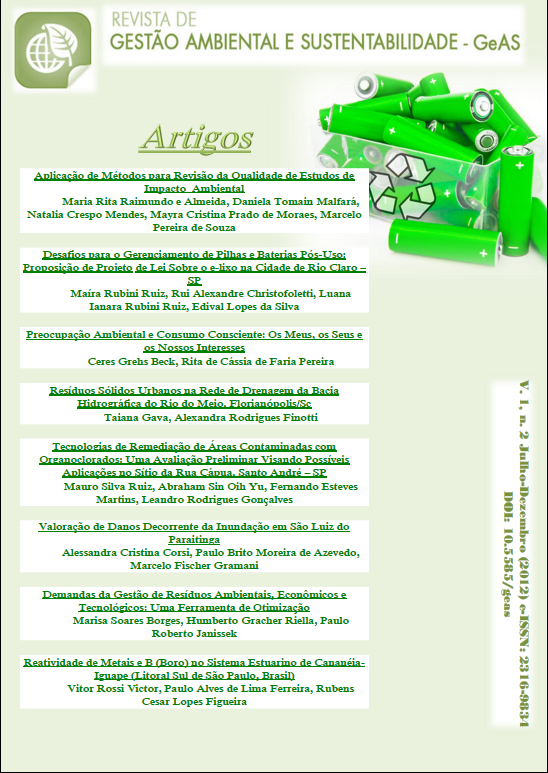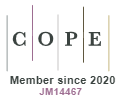Challenges for the Management of Cells and Batteries After Use: Nomination of Bill on E-Waste in the City of Rio Claro - SP
DOI:
https://doi.org/10.5585/geas.v1i2.21Keywords:
Management of Batteries, Electrical and Electronic Waste, Environmental Education.Abstract
The purpose of this paper is to present both the political and educational actions that are the major subjects of bill on management of batteries in Rio Claro city, SP, Brazil. While the political actions refer to the furthering of a bill approved recently in the local Youth Parliament for presentation in the Board of Aldermen, the educational actions relate to the creation of an environmental education program to orient the disposal of batteries at the municipal level. The National Policy on Solid Waste (Law 12,305 passed in 2010) introduced mechanisms to accomplish the shared responsibility for the lifecycle of batteries (and other products) and reverse logistics. This law classified batteries into the category of toxic waste. The study that supported the writing of the bill included an analysis of the existing public and private initiatives on batteries´ collection in Rio Claro seeking treatment in major urban centers having the reverse logistics as a premise. In recognition of the importance of the environmental education program, the local Education Secretariat, supported by Sepladema, has defined a schedule for the lectures to be given in public schools. In addition, an application claiming for reforms in the existing public ecopoints was submitted and approved in the Youth Parliament and forwarded for further approval by Sepladema.Downloads
Download data is not yet available.
Downloads
Published
2012-12-20
How to Cite
Ruiz, M. R., Christofoletti, R. A., Ruiz, L. I. R., & Silva, E. L. da. (2012). Challenges for the Management of Cells and Batteries After Use: Nomination of Bill on E-Waste in the City of Rio Claro - SP. Revista De Gestão Ambiental E Sustentabilidade, 1(2), 29–50. https://doi.org/10.5585/geas.v1i2.21
Issue
Section
Artigos










